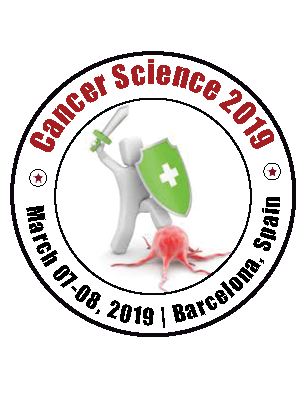Itzia Xiuhnelly Nava Sanchez
Sonora Cancer Research Center (CICS), USA
Title: Kinetics of antibody-antigen binding evaluated by ELISA in refractory cancer patient
Biography
Biography: Itzia Xiuhnelly Nava Sanchez
Abstract
Kinetics of antigen binding influence how, potently antibodies attack strong enough tumor cells at the clinical level and contribute in combination with other therapies potentially better outcomes when we induce multiple antigen specific antibodies against multiple clinical relevant targets in progressive and refractory cancer patients with an ECOG=0-1. The potential of immunological assays such as peptide Enzyme-Linked Immuno Sorbent Assay (ELISA) to predict affinity of antibody-antigen are mainly unexplored as many of the studies in cancer either for diagnosis, prognosis, etc. Most of the researchers assume that all the repertoire of antibodies, tumor associated antigens, recall antigens, etc. will behave equally. We decided to analyze by ELISA the kinetics of antigen-antibody binding at one, two, six, twelve, twenty four and seventy two hours without adding stopping solution. The study was retrospective and approved by the local ethic committee. We analyze (n=20) the kinetics of antibody-antigen reactions using clinically relevant immunogenic peptides such as RCAS1-A, VCP-4, SURVIVIN-A, Fascin-1, EGFR-D, Bcl2-A, SOX2-B and APE1-A in refractory cancer patients as following with breast cancer (n=2), pancreatic cancer (n=1), sarcoma (n=3), prostate cancer (n=2), ovarian cancer (n=1) and colorectal and colon cancer (n=1) and presumably healthy patients (n=10). With this proof of principle, the procedure was changed, adding the first antibody of each patient (serum dilution 1:200) and were incubated for 2 and 24 hours according with our preliminary results. We found statistical differences between different types of tumors, epitopes and two and twenty four hour’s kinetics. As preliminary conclusion, exposing the antigen-antibody interaction in two and twenty-four hours process in different subtypes of cancer, putatively predict the specific immune system behavior and the increase in titles in the reaction of an specific peptide at 24 hours might translate into greater maturity and memory of the immune system. However, an increased number of samples will be useful to clarify possible clinical associations.

